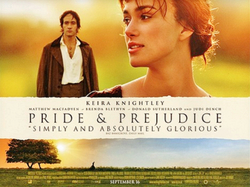Hello All! My name is Zach Locascio and I am an English major with a creative writing minor. I like to read Sci-Fi and horror. Some of my favorite authors are Kurt Vonnegut, Sylvia Plath and Cormac McCarthy.
It is a danger for women to say indelicate things. Elizabeth will normally speak her mind and soul, doing and speaking as she pleases, full of witty remark and objections to things that women in her time were not supposed to object against. But she is an exception, not the rule and even she is forced to respect the way that things are in her time on occasion, for instance when she agrees to dance with Mr. Collins simply because it is not acceptable to say no to a dance offer at a ball.
When women say things that are indelicate, even when they’re honest, they are going against was is expected of them. As Fordyce writes in Sermons to Young Women, “[f]emale angel … never wrote, nor, as I have been told, was ever supposed to have said, in her whole life, an ill-natured or an indelicate thing.” Fordyce is saying here that women can be smart but they should not be saying anything that may be considered rude or of poor manners to some people. Women should devote there time to adding to pious literature, not a literature world of their or speak up against what was being imposed on them in this time by religion. (I can imagine Jane Austen reading this and thinking “Well, I am going to do the exact opposite.”) Elizabeth rejects Mr.Collins’ marriage proposal and suffers for it. Mr.Collins has hardly known Elizabeth, certainly not well enough to propose to her, but it is Elizabeth who must suffer the wrath from her mother for rejecting the silly proposal. As her mother, who is more concerned with the things that she has been taught to be concerned with, refuses to see Elizabeth if she rejects the marriage offer because Mr. Collins will have land and is a nice enough character. Elizabeth does not love him and knows he will not love her, so she refuses, making the right decision but it is not the delicate decision so it is frowned upon.

 is a
is a